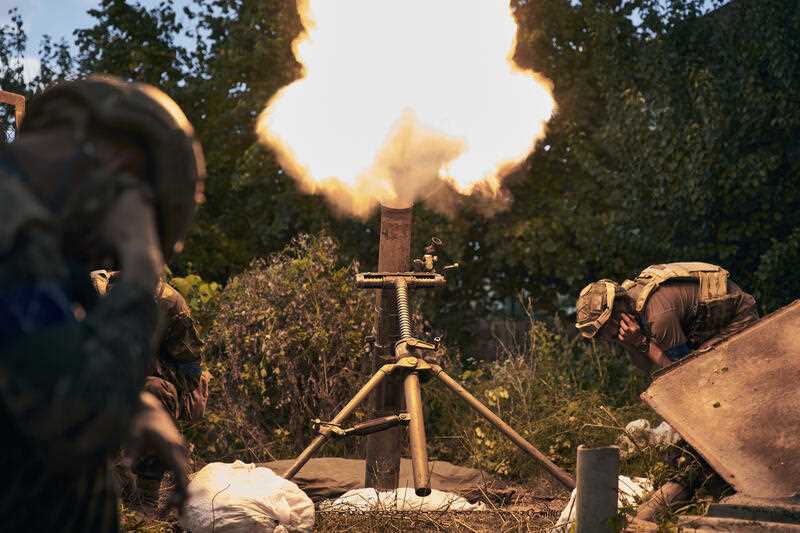Russia has launched referendums in four occupied areas of Ukraine expected to be used by Moscow to justify annexation, but Kyiv says the voting is mandatory with residents threatened with punishment if they don’t take part.
The votes on whether the regions should become part of Russia began after Ukraine earlier this month recaptured large swathes of territory in a counteroffensive.
With Russian President Vladimir Putin also announcing this week a military draft to enlist 300,000 troops to fight in Ukraine, the Kremlin appears to be trying to regain the upper hand in the grinding conflict.
And by incorporating the four areas into Russia, Moscow could portray attacks to retake them as an attack on Russia itself, a warning to Kyiv and Western supporters.
Putin on Wednesday said Russia would “use all the means at our disposal” to protect itself, an apparent reference to nuclear weapons. “This is not a bluff,” he said.
Voting in the provinces of Luhansk, Donetsk, Kherson and Zaporizhzhia, representing about 15 per cent of Ukrainian territory, is due to run from Friday to Tuesday.
The referendums have been widely condemned by the West as illegitimate and a precursor to illegal annexation. There will be no independent observers, and much of the pre-war population has fled.
The Organization for Security and Cooperation in Europe (OSCE), which monitors elections, said the outcomes would have no legal bearing as they do not conform with Ukraine law or international standards and the areas are not secure.
Serhiy Gaidai, Ukraine’s Luhansk region governor, said that in the Russian-held town of Bilovodsk, a company director told employees the voting was compulsory and anyone refusing to take part would be fired and their names given to security services.
He said that in the town of Starobilsk, Russian authorities banned the population from leaving the city until Tuesday and armed groups had been sent to search homes and coerce people to get out to take part in the referendum.
“The mood of the Russians is panicky because they were not ready to carry out so quickly this so-called referendum, there is no support, there’s not enough people,” Yuriy Sobolevsky, the displaced Ukrainian first deputy chairman of the Kherson regional council, said on messaging app Telegram.
“Today, the best thing for the people of Kherson would be not to open their doors.”
Russia argues that the referendums offer an opportunity for people in the region to express their view.
“From the very start of the operation… we said that the peoples of the respective territories should decide their fate, and the whole current situation confirms that they want to be masters of their fate,” Russian Foreign Minister Sergei Lavrov said this week.
Hinting at the Kremlin’s strategic calculation in staging the referendums, ex-president Dmitry Medvedev, now deputy head of its national security council, warned Moscow would henceforth deem any attack on the four territories as one on Russia itself.
“Encroachment onto Russian territory is a crime which allows you to use all the forces of self–defence,” Medvedev said in a Telegram post on Thursday, adding that any weapons in Moscow’s arsenal, including strategic nuclear weapons, could be used.
Referendum results overwhelmingly in favour of Russia are considered inevitable, as in Crimea in 2014.
The plebiscites have been denounced as an illegal farce by world leaders including US President Joe Biden, UN Secretary-General Antonio Guterres and French President Emmanuel Macron, as well as NATO, the European Union and the OSCE.
Russia already considers Luhansk and Donetsk, which together make up the Donbas region Moscow-backed proxies partially occupied in 2014, to be independent states.
Russia does not fully control any of the four regions, with only around 60 per cent of Donetsk region in Russian hands.
By Pavel Polityuk in KYIV
Get the latest news, sport, entertainment, lifestyle, competitions and more delivered straight to your inbox with the Canberra Daily Daily Newsletter. Sign up here.



